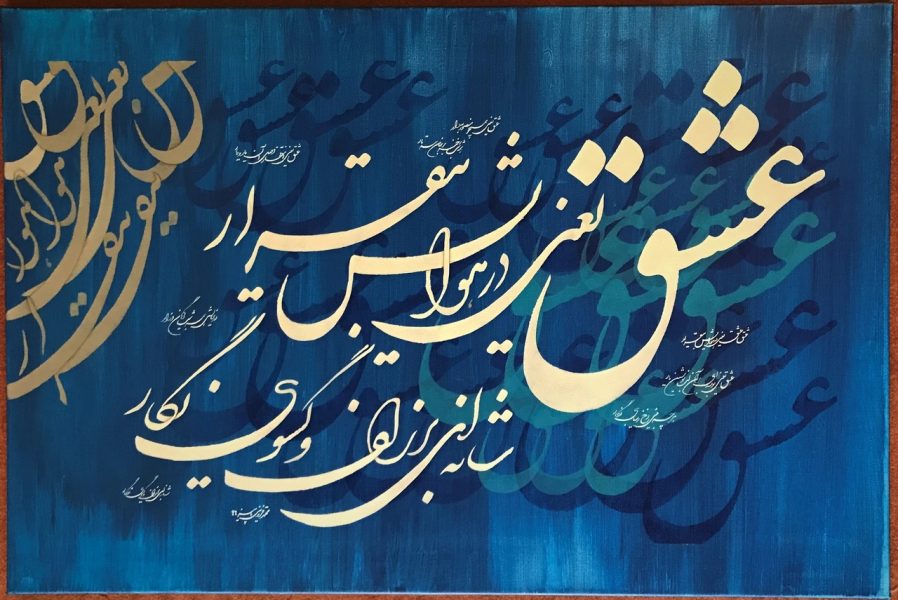Gōwēnd kū abēr tēz nāxunān ī ōy ast,
Tarsēnd kū wuzurg, pašmīg payān ī ōy ast.
Bē-t čē rāy nigāh kardan pad rōy-š nē kāmēd?
Wāžam kū starān pad syāhagān ī ōy ast.
Here the meter is as follows: / / / U / / / U / / / / (/ is a long syllable, U is a short one). There is no violation in the third line: pad rōy-š is pronounced with the following division into syllables: pa-drōyš — this is also found in modern poetry.
Literal translation:
They say his claws are too sharp,
They are afraid that his legs are too big and hairy.
But why don't you want to look him in the face?
The river that has stars in its pupils.
Again, a slightly crazy poetic translation:
They tell me: his fang is dangerous,
They are afraid: his hand is completely covered in fur.
But it’s a pity that they don’t want to look at his face -
I said to him: I saw a star in his pupils.
This one is not as ironic as the previous one, but it is also very cute.

